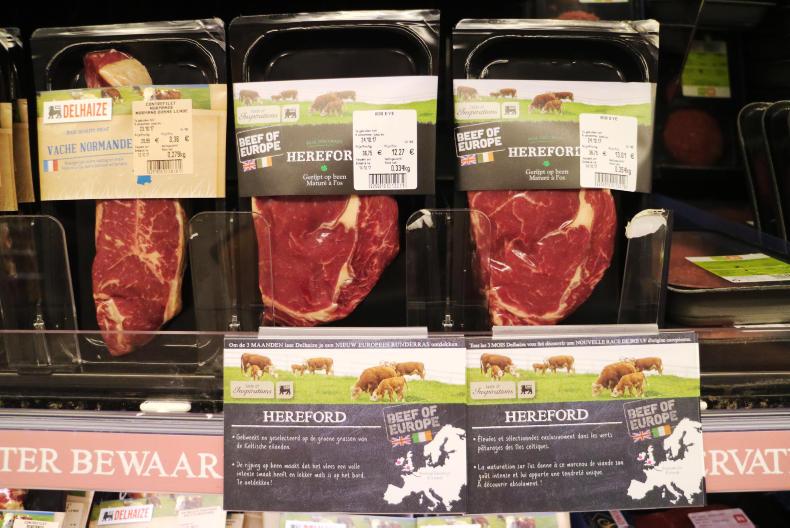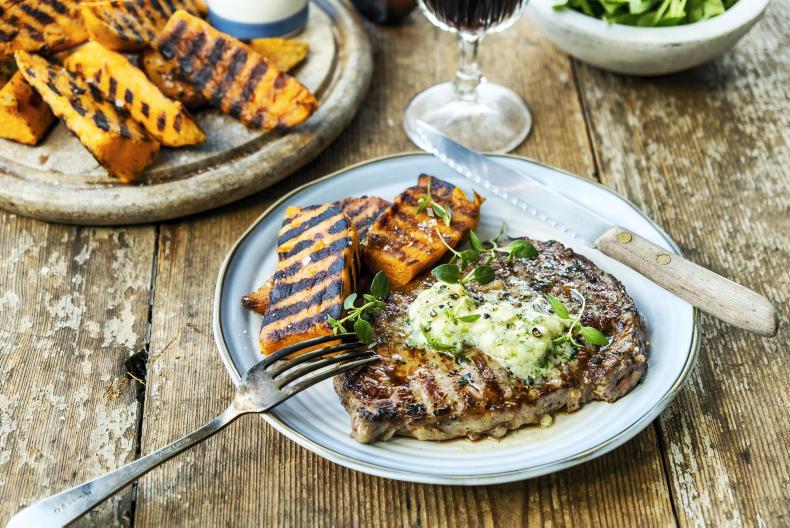It is becoming clear that farmgate prices are taking a hit across all commodities and the indications are that it will be worse before it gets better.
That means that farmers, like others, will need support measures and they will likely need to go beyond the standard.
The special committee on agriculture (SCA) will meet in Brussels on Monday to reflect on the proposals released by the Commission on Thursday afternoon.
The SCA is made up from the agriculture attachés in the permanent reps in the EU who work closely with their respective departments of agriculture.
It is their job to ensure that the national position is reflected at the centre of the EU and, in turn, to keep the national departments of agriculture advised of thinking and policy evolution in Brussels.
Commission response
On Thursday this week, the Commission revealed its latest response to the unfolding crisis in agriculture across the EU. They are limited in scope and will have little real impact on addressing income shortfall caused by falling markets.
Farmers will be eligible to access loans at favourable rates of up to €200,000 and member states have been given flexibility to reallocate money not spent in the rural development funds, though it will still have to be used within the existing framework.
Payment applications can be extended by a month until 15 June and advance payments will be increased from 50% to 70% for direct payments and 75% to 85% for pillar II payments and payable from October. This is to ease cashflow.
The proposed additional support in the form of state aid and financial tools will enable unlocking the needed cashflow
Inspection and reporting requirements for member states to the EU are being relaxed in order to reduce the administrative burden and avoid face-to-face contact.
These proposals have been welcomed by CEJA, the EU organisation that represents young farmers, which said that “the proposed additional support in the form of state aid and financial tools will enable unlocking the needed cashflow to the continuity of farming businesses”.
Current Commission
The challenge of getting a response from Brussels that would suit Irish farmers is greater in this Commission than it might have been in the previous commission when Phil Hogan had the agriculture portfolio.
The current incumbent, Janusz Wojciechowski, whose political background is the farmers party in Poland, doesn’t appear to be as powerful an advocate on behalf of farmers as his predecessor.
He has served as MEP and in the court of auditors prior to becoming a commissioner and is known as a strong advocate of animal welfare standards and organic farming.
Agriculture has a fight to get attention in Brussels, such is the scale and impact of COVID-19 as it unfolds across the EU, at a time when getting field hospitals and ventilators is the immediate priority and economies are effectively shut down.
Light in tunnel
Best-case scenario is that we have a three- to six-month collapse of normal functioning economies across the EU. In that case, relatively short-term but intensive support should be adequate for agriculture.
The EU Commission president speaks of a Marshall-type plan to rebuild the economies of the EU after COVID-19 is brought under control.
That was a massive investment by the USA after World War II to rebuild Europe and is regarded as a huge success.
Of course, the US will have its own rebuilding to do, but from agriculture’s perspective, one lesson learned is the absolute need to keep supermarket shelves full to avoid mass panic by citizens.
That in itself should reboot thinking in the European Commission that had become obsessed with getting rid of pesticides and fertiliser and promoting organic farming.
All of these have their place, but in the context of maintaining an adequate and accessible food supply alongside, not instead of.
Furthermore, the dramatic reduction in greenhouse gas emissions in recent weeks is a timely demonstration that livestock were never really the problem.
As for markets, the current view is bleak. Yet, adversity can drive creativity. As we approach Easter, we get into BBQ season.

Supermarkets across Europe sell low volumes of steak meat but at high value.
With factories stockpiled with steak meat, supermarkets and butchers need to get active in promotion of steak meat sales.
It would make a much more meaningful contribution to farmgate prices than promises to maintain the price of manufacturing beef, which is probably rising in value as steak meat falls.
China
Finally, there is China.
Three months after the outbreak was discovered there, they appear to have it under control and life is slowly returning to normal.
Their buyers are back in world markets and with African swine fever (ASF) still meaning a huge deficit in pigmeat supply, the Chinese beef demand is expected to lead to another new record year for beef imports.
Irish factories are well positioned to grab a share of this and, as our approval is for frozen boneless beef cuts, it is an exception to the rule on how a private storage aid could be made work as a support for the Irish beef industry.
Read more
Market turmoil for beef and lamb
Beef trends: cows suffer greatest price cut
It is becoming clear that farmgate prices are taking a hit across all commodities and the indications are that it will be worse before it gets better.
That means that farmers, like others, will need support measures and they will likely need to go beyond the standard.
The special committee on agriculture (SCA) will meet in Brussels on Monday to reflect on the proposals released by the Commission on Thursday afternoon.
The SCA is made up from the agriculture attachés in the permanent reps in the EU who work closely with their respective departments of agriculture.
It is their job to ensure that the national position is reflected at the centre of the EU and, in turn, to keep the national departments of agriculture advised of thinking and policy evolution in Brussels.
Commission response
On Thursday this week, the Commission revealed its latest response to the unfolding crisis in agriculture across the EU. They are limited in scope and will have little real impact on addressing income shortfall caused by falling markets.
Farmers will be eligible to access loans at favourable rates of up to €200,000 and member states have been given flexibility to reallocate money not spent in the rural development funds, though it will still have to be used within the existing framework.
Payment applications can be extended by a month until 15 June and advance payments will be increased from 50% to 70% for direct payments and 75% to 85% for pillar II payments and payable from October. This is to ease cashflow.
The proposed additional support in the form of state aid and financial tools will enable unlocking the needed cashflow
Inspection and reporting requirements for member states to the EU are being relaxed in order to reduce the administrative burden and avoid face-to-face contact.
These proposals have been welcomed by CEJA, the EU organisation that represents young farmers, which said that “the proposed additional support in the form of state aid and financial tools will enable unlocking the needed cashflow to the continuity of farming businesses”.
Current Commission
The challenge of getting a response from Brussels that would suit Irish farmers is greater in this Commission than it might have been in the previous commission when Phil Hogan had the agriculture portfolio.
The current incumbent, Janusz Wojciechowski, whose political background is the farmers party in Poland, doesn’t appear to be as powerful an advocate on behalf of farmers as his predecessor.
He has served as MEP and in the court of auditors prior to becoming a commissioner and is known as a strong advocate of animal welfare standards and organic farming.
Agriculture has a fight to get attention in Brussels, such is the scale and impact of COVID-19 as it unfolds across the EU, at a time when getting field hospitals and ventilators is the immediate priority and economies are effectively shut down.
Light in tunnel
Best-case scenario is that we have a three- to six-month collapse of normal functioning economies across the EU. In that case, relatively short-term but intensive support should be adequate for agriculture.
The EU Commission president speaks of a Marshall-type plan to rebuild the economies of the EU after COVID-19 is brought under control.
That was a massive investment by the USA after World War II to rebuild Europe and is regarded as a huge success.
Of course, the US will have its own rebuilding to do, but from agriculture’s perspective, one lesson learned is the absolute need to keep supermarket shelves full to avoid mass panic by citizens.
That in itself should reboot thinking in the European Commission that had become obsessed with getting rid of pesticides and fertiliser and promoting organic farming.
All of these have their place, but in the context of maintaining an adequate and accessible food supply alongside, not instead of.
Furthermore, the dramatic reduction in greenhouse gas emissions in recent weeks is a timely demonstration that livestock were never really the problem.
As for markets, the current view is bleak. Yet, adversity can drive creativity. As we approach Easter, we get into BBQ season.

Supermarkets across Europe sell low volumes of steak meat but at high value.
With factories stockpiled with steak meat, supermarkets and butchers need to get active in promotion of steak meat sales.
It would make a much more meaningful contribution to farmgate prices than promises to maintain the price of manufacturing beef, which is probably rising in value as steak meat falls.
China
Finally, there is China.
Three months after the outbreak was discovered there, they appear to have it under control and life is slowly returning to normal.
Their buyers are back in world markets and with African swine fever (ASF) still meaning a huge deficit in pigmeat supply, the Chinese beef demand is expected to lead to another new record year for beef imports.
Irish factories are well positioned to grab a share of this and, as our approval is for frozen boneless beef cuts, it is an exception to the rule on how a private storage aid could be made work as a support for the Irish beef industry.
Read more
Market turmoil for beef and lamb
Beef trends: cows suffer greatest price cut







 This is a subscriber-only article
This is a subscriber-only article









SHARING OPTIONS: